Amid growing tensions across Bangladesh, student protestors on July 29 rejected the government’s decision to observe a national day of mourning on July 30 and instead announced a nationwide protest, symbolically tying red cloths over their mouths and eyes. The protest was intended to denounce the state’s failure to ensure justice for those killed during the ongoing quota reform movement.
Earlier that afternoon, the government had declared July 30 as a national mourning day, urging citizens to wear black badges and offer special prayers at religious institutions for the lives lost in the student movement. However, student leaders quickly dismissed the move, calling it a "mockery" in the absence of justice for killings, torture, and mass arrests.
At around 9:30 PM, Mahin Sarkar, a coordinator of the anti-discrimination student movement, issued a public statement via SMS declaring the red-cloth protest. He urged people across the country to participate in the demonstration and upload photos on social media, emphasizing the movement’s nine-point charter of demands.
The response was immediate and widespread. Social media platforms turned red as people from all walks of life — including celebrities — changed their profile pictures in solidarity with the students.
Earlier that day, student demonstrators had staged protests and sit-ins in Dhaka and other major cities, demanding an end to abductions and arbitrary arrests, release of detainees, withdrawal of false cases, and accountability for those killed. They also condemned what they called forced confessions by six central student coordinators who, while in custody of the Detective Branch (DB), had reportedly been coerced into announcing the withdrawal of the movement.
Despite a nationwide curfew, which had been in place for ten consecutive days and saw some relaxation on July 29, demonstrations erupted in various parts of the country. Protestors defied heavy police presence in cities including Dhaka, Sylhet, Chattogram, Rajshahi, Cumilla, Barishal, Bogura, and Jashore. In the capital, demonstrators gathered in areas like Paltan, Segunbagicha, Science Lab, Mirpur-10, and ECB Square, facing baton charges from police. At least 50 students were reportedly detained in Dhaka alone.
Security was visibly intensified, with army patrols on the streets, Rapid Action Battalion (RAB) helicopters hovering overhead, and checkpoints erected across key points. Police used loudspeakers to warn against gatherings, and ruling party activists were also seen occupying strategic street corners.
The High Court also weighed in on the matter, expressing outrage over the circulation of a photo showing the detained student leaders having food inside the DB office — labeling it a “national mockery.” The remarks came during a hearing on a writ petition demanding their release and a halt to police action against students.
That evening, the ruling 14-party alliance met at Ganabhaban under the leadership of deposed Prime Minister Sheikh Hasina. The coalition unanimously supported a ban on the political activities of Jamaat-e-Islami and its student wing, Islami Chhatra Shibir, accusing them — along with BNP and Chhatra Dal — of conspiring to destabilize the country.
In response to the continued violence, arrests, and repression, a group of lawyers formed a human chain in front of the Supreme Court, leading to the establishment of a National People`s Inquiry Commission to investigate the killings and human rights violations during the movement.
Meanwhile, BNP Secretary General Mirza Fakhrul Islam Alamgir rejected the government’s official death toll, citing media reports indicating a significantly higher number of casualties. The opposition coalition Ganatantra Manch issued a six-point demand that included a UN-supervised investigation into the killings, immediate lifting of the curfew, withdrawal of security forces, restoration of internet services, and release of all arrested activists.
University teachers also spoke out, labeling the killings as the "July Massacre." Over 100 educators from across the country demanded an end to enforced disappearances, arbitrary detentions, and state-led intimidation of students.
Transparency International Bangladesh (TIB) condemned the DB’s alleged coercion of detained protest leaders, calling it "unethical" and a "heinous crime." TIB criticized the DB for misleading the public and violating legal norms by detaining the student leaders under the pretense of “protective custody.”
In a final show of national dissent, 74 eminent citizens issued a joint statement demanding a transparent, UN-supervised investigation into each reported killing, abduction, and instance of torture tied to the student-led quota reform movement.


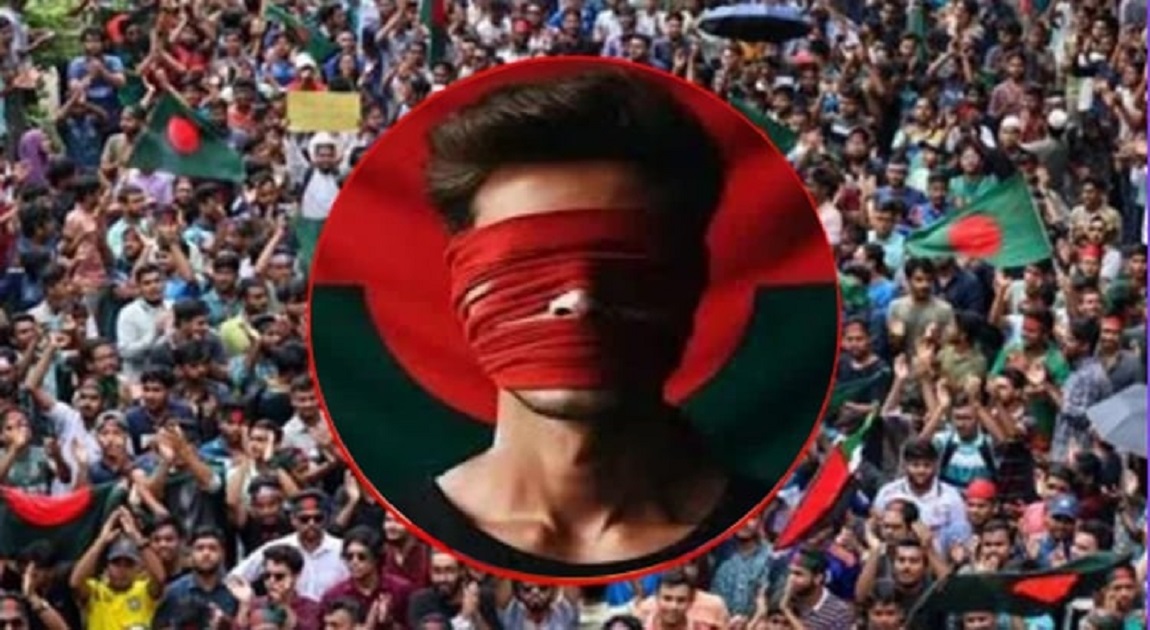

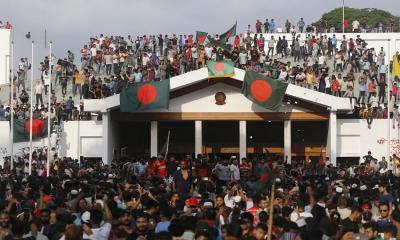
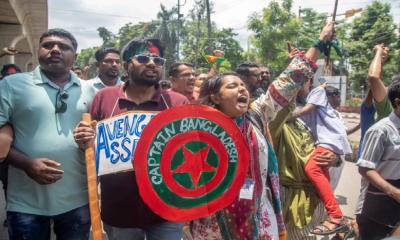
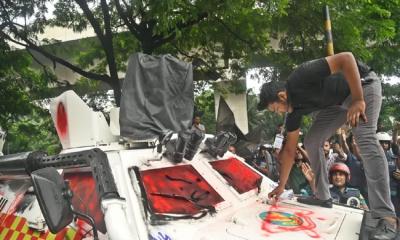
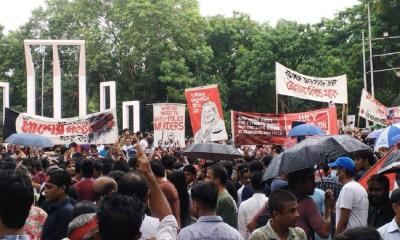
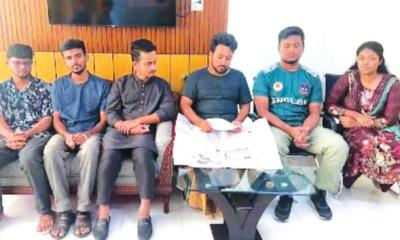
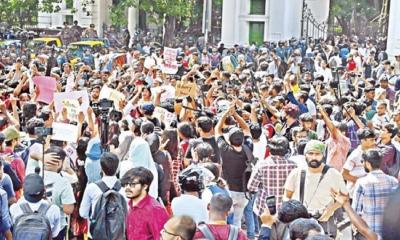




-20260226080139.webp)






-20260225072312.webp)










-20260219054530.webp)
-20260224075258.webp)





-20260221022827.webp)